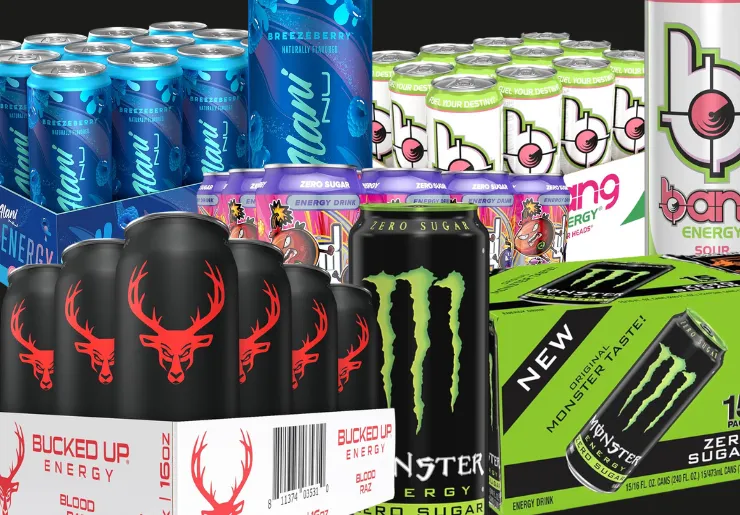
How Long Do Energy Drinks Last? Understanding Their Effects

How Long Do Energy Drinks Last? Understanding Their Effects
Energy drinks are a go-to choice for many seeking a quick energy boost, but how long do their effects actually last? And what factors can influence this duration?
How Quickly Do Energy Drinks Work?
Most people start to feel the effects of an energy drink within 10 to 20 minutes after consumption, as caffeine enters the bloodstream and increases alertness. The peak effect usually occurs between 30 and 60 minutes after drinking, when caffeine levels are highest in the body.
How Long Do the Effects Last?
On average, the stimulating effects of an energy drink last between 3 and 6 hours. However, caffeine remains in the system much longer; its half-life is about 5 hours, meaning half the caffeine is still present after that time. Depending on individual metabolism, sensitivity, and the amount consumed, some people may feel the effects for up to 12 hours (1st Phorm, 2023).
What Influences How Long Energy Drinks Last?
Several factors affect the duration of energy drink effects:
Metabolism: Faster metabolisms process caffeine more quickly, so effects may wear off sooner.
Body Weight: Individuals with higher body weight may require more caffeine to feel the same effects, which can also impact duration.
Caffeine Sensitivity: Those sensitive to caffeine may experience stronger and longer-lasting effects.
Type of Caffeine: Synthetic caffeine often acts faster but may lead to a quicker crash, while natural sources tend to provide a smoother, more prolonged boost.
Amount Consumed: Consuming multiple energy drinks or higher doses of caffeine can extend the duration of effects and increase the risk of side effects.
The Crash: Why It Happens
Many people experience a “crash” after the initial energy boost fades. This is often due to the combination of caffeine and sugar. As blood sugar levels drop and caffeine wears off, feelings of fatigue, irritability, and decreased concentration can occur.
Health Considerations
Caffeine Intake: Excessive caffeine can cause jitters, anxiety, rapid heart rate, and sleep disturbances. It’s generally recommended to avoid energy drinks within six hours of bedtime to minimize sleep disruptions.
Sugar Content: High sugar levels can contribute to energy crashes and may have long-term health impacts if consumed regularly.
Mixing with Alcohol: Combining energy drinks with alcohol can mask the effects of intoxication and may lead to risky behavior.
Key Takeaways
Energy drinks typically last 3–6 hours, but caffeine can linger in your body for up to 12 hours.
Individual responses vary based on metabolism, body weight, caffeine sensitivity, and the type and amount of caffeine consumed.
To avoid unwanted side effects, moderate your intake and avoid consuming energy drinks late in the day.
References
1st Phorm (2023) How Long Do Energy Drinks Last? Available at: https://1stphorm.com/blogs/news/how-long-do-energy-drinks-last (Accessed: 14 June 2025).
.
